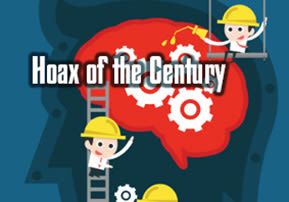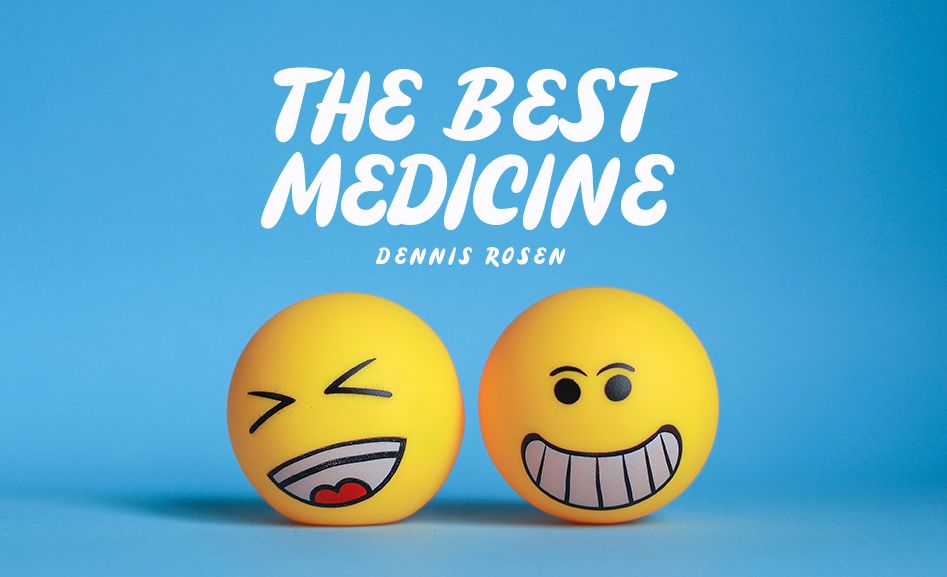
Hoax of the Century
Do doctors really know how to detect a chemical imbalance in the brain? What is "normal" brain chemistry? Is there an analytical method of prescribing SSRIs?

If someone asked you what you thought the biggest hoax of the century was, what would you tell them? The ‘UFOs’ that were just a cover-up for all the military testing that was going on in the 1950s? That nuclear energy really is safe? That the Palestinians really want peace with Israel?
I’d pick this: that there really is a chemical imbalance in people’s brains, and that’s why they need to take lots of mind-altering drugs.
Before you get all huffy with me, give me a couple of minutes’ grace, and just read to the end of the article. I’ve been doing a lot of research into depression as part of my preparations to train for and start up an aromatherapy practice.
As part of my training, I’ve been reading a lot of books and articles about the links between emotions and the  physical chemistry of the body. Books like biochemist Candace Pert’s ‘Molecules of Emotion’; like Andrew Weil MD’s ‘Spontaneous Healing’; plus a whole bunch of other things dealing with the field of psychoneuroimmunology.
physical chemistry of the body. Books like biochemist Candace Pert’s ‘Molecules of Emotion’; like Andrew Weil MD’s ‘Spontaneous Healing’; plus a whole bunch of other things dealing with the field of psychoneuroimmunology.
Here’s what I learned, in a nutshell (please, feel free to go and research all this stuff for yourself once you get to the end of the article).
First: there is no test that psychiatrists perform to determine whether you have a ‘chemical imbalance’. In fact, the nearest science has come to identifying the levels of serotonin in the brain is to take a dead person’s brain, mush it up, spin it in a centrifuge, and then measure the amount of serotonin present relative to other substances.
Consider this quote, from Dr Stephen Novella, a Yale neurologist: “The idea that we can diagnose a ‘chemical imbalance’ in the brain is pure nonsense – even if we could measure it, we don’t know what normal brain chemistry is. Bear in mind that no psychiatrist actually attempts to measure your brain chemistry before prescribing SSRIs (Selective serotonin re-uptake inhibitors, or antidepressants). They don’t do it, of course, because they have not the slightest idea how to diagnose allegedly dysfunctional neurochemistry. They infer the idea of dysfunctional neurochemistry from your subjective symptoms (ie depression).
“That idea has achieved an outrageously disproportionate credibility, seeming like certain knowledge to the layperson, when in fact the reality is that the nature of serotonin and related neurotransmitters remains almost completely mysterious to medical science.”
Second: Pert’s research as a cutting-edge biochemist proved that serotonin is also produced in the intestines, and also by the cells of the immune system. Even if the scientists could actually measure the amount of serotonin present in a live person’s brain (which they can’t) – that would still only give a very partial picture about the amount of serotonin present in a person’s body.
Third: Anti-depressants don’t work. Placebo sugar pills achieved the same ‘success rates’ as the drugs – without all the horrible side-effects.
Fourth: Ahh, the side effects. So few people talk about them, or even know about them (apparently including the doctors that are prescribing them.) Do you know that anti-depressants are linked to a whole bunch of horrible things including weight gain, permanent dysfunction in the bedroom; birth defects like autism (yes, you read that correctly); tics, neurological damage and with long-term use, even things like Alzheimers and Parkinsons?
Most of these things take years to show up, which is why these drugs apparently sailed through the few months of clinical trials they had. But that emotional numbing effect that everyone thinks is so great is actually the result of chemical brain damage. These drugs are damaging the delicate chemistry of the brain, often with terrible, irreversible effects.
So why are so many people queuing up to use anti-depressants?
Before you answer that question, let me quote you something else from a very well-researched and footnoted article on SSRIs that you can read for yourself here [link]:
“Antidepressants are closely related to amphetamines like ecstasy and cocaine. Cocaine essentially does exactly the same kinds of things to the brain, only it messes with serotonin plus a few other molecules. You can think of anti-depressants as ‘simplified cocaine’ and ‘legal cocaine’.”
Do you know just how many of the mums I know are on anti-depressants? Do you know how many of them are urging their friends and relatives to follow suit?
They’d have a heart-attack if their kid developed a coke habit, or became a heroin junky – but I guess if their child got it on prescription from their doctor, somehow, that would be OK.
People, we need to listen to our holy rabbis! Rav Shalom Arush, Rabbi Lazer Brody and others have been telling us for years that Prozac is bad, that ‘chemical imbalances’ is a big lie and that the only way to really be happy is to learn some emuna.
There are no shortcuts: either, we learn emuna and put G-d in the picture, or we take Prozac and give ourselves potentially irreversible brain-damage. The choice is ours…
* * *
You’re welcome to visit Rivka Levy’s personal website at http://www.emunaroma.com











9/01/2014
the article is missing some essential parts of the equation I agree that 'meds' are an unhealthy solution.I also know from experience that for those suffering from 'chemical imbalance' proven by 'science' or not,- the pain is very real, and I believe that a holistic approach which includes diet,proper sleep, exercise, therapy,eliminating allergens,supplements,meditation spiritual work are all essential and proven,productive paths to healing. Emuna although an excellent point, is not enough.Telling people its a hoax and to just have Emuna is cruel.
9/01/2014
I agree that 'meds' are an unhealthy solution.I also know from experience that for those suffering from 'chemical imbalance' proven by 'science' or not,- the pain is very real, and I believe that a holistic approach which includes diet,proper sleep, exercise, therapy,eliminating allergens,supplements,meditation spiritual work are all essential and proven,productive paths to healing. Emuna although an excellent point, is not enough.Telling people its a hoax and to just have Emuna is cruel.
8/27/2014
not accurate Ms. Levy's piece while well intentioned and with some truth is not completely accurate. The field of mental health has developed greatly in the past 40 years. There are people who appear to benefit greatly from such pharmaceuticals. The man point: these drugs are too often prescribed without sufficient knowledge of side-effects and long-term effects. Such medication should not be entered into lightly. The article makes a very important point that working on emuna through personal prayer and with the help of a proper rabbi or counselor is essential for our lives. In its black and white assessment, though, the article does not make the serious disclaimer that even Rabbi Brody has made: that some people, for medical reasons, need to use certain kinds of medicines. I personally know some people who successfully use these medications. Would they do better with personal prayer and emuna? I think they would, but I am not a doctor. I also have known rabbi-psychologists who understand that some people do need this medication. It would help a lot to have Dr. Zev Ballen chime in here to get a professional doctor's point of view. While this article definitely has good intentions, it's black and white approach may not be helpful especially for those with, G-d forbid, serious medical conditions. Personal prayer and emuna are essential for life all the way around. But, please, can we not dangerously exclude some medicines that could help people?